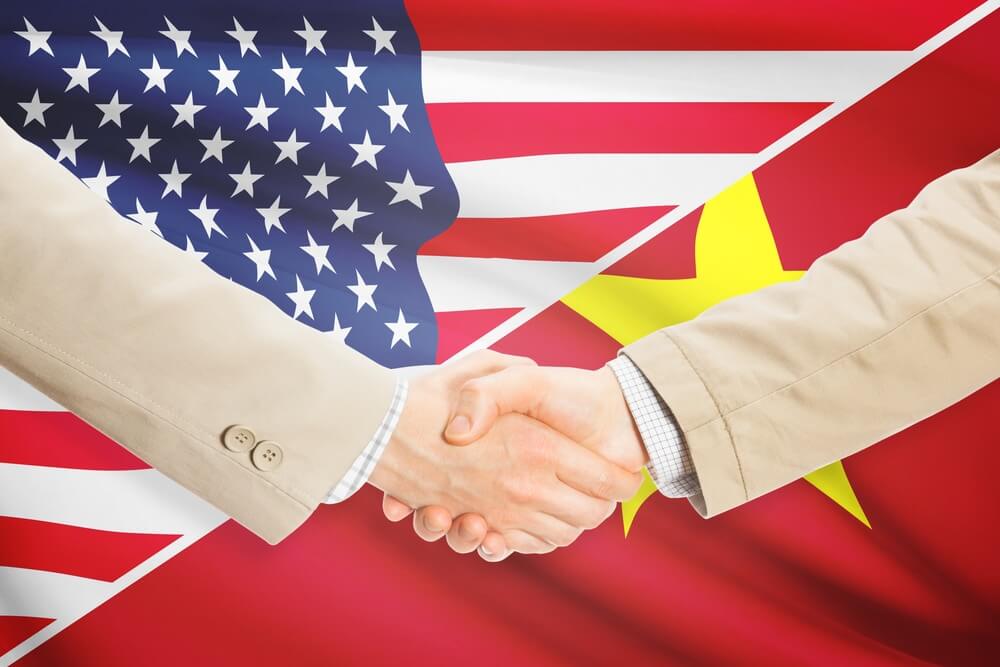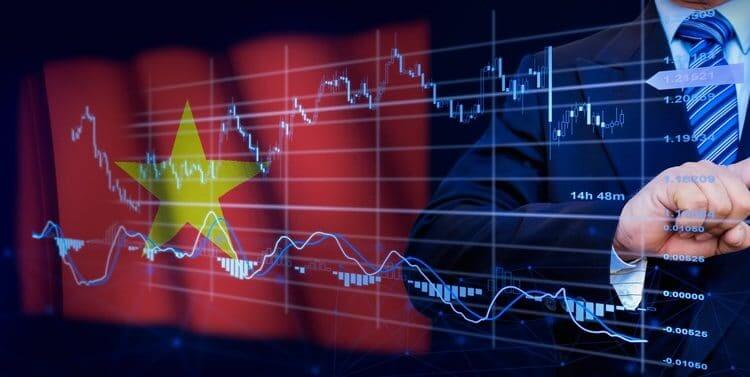
Dong Stabilizes as Biden Team Look for Trade Partnership With Vietnam
Very few countries can say that they’ve had a “good 2020”, but Vietnam certainly can.
Almost all of the economic news emanating from the southeastern Asian country has been positive this year, from the report that Samsung is relocating its production from China to Vietnam to the fact that Vietnam did extremely well with containing the Covid-19 outbreak.
Now, things are getting even better. The country’s trading outlook – and as a result, the exchange rate of the Dong – have suffered in recent years from Trump’s trade war with China. Now, with a new incumbent (almost) in the White House, the exchange rate of the Dong is stabilizing, and FX trading is picking up.
In this article, we’ll look at the issues that have affected the Dong’s stability, and what a Biden presidency means for the future of the currency.
The US, China, and Vietnam
Over the past few years, Vietnam has been an accidental victim of President Trump’s approach to international trade. The country and its currency – the Dong – appeared to be in a good position in the early stages of the Trump administration, because the tariffs imposed by Trump led many investors to move money away from China and toward Vietnam. Unfortunately, a soaring surplus with the United States then saw tight tariffs imposed, and the country was accused of currency manipulation by the US.
What followed was a period of sustained instability that has lasted much of the past four years. While some startups have done very well from the virus, this instability has left many companies in the country facing bankruptcy, and Vietnam’s trade surplus with the United States on track to overtake last year’s $56 billion record.
Changing tides
For FX investors, the recent performance of Vietnam has been even more unstable. The government of the country has managed to keep inflation at 4% annually, but the value of the currency against the USD has been reducing more slowly.
At a time when we are seeing record trading in FX markets – up to $6.6 trillion per day on average – this has essentially cut Vietnam off from a much needed source of stability and growth funding. There are signs, however, that things are changing.
The incoming Biden administration is expected to take a much more conciliatory approach when it comes to trade with China, and this is expected to lead to a rebalancing of investments across southeastern Asia. Vietnam itself is also likely to benefit from more cordial ties to the US. Vietnamese Prime Minister Phuc recently met with Adam Boehler, the head of the U.S. International Development Finance Corporation, and stressed repeatedly that Vietnam is not interested in currency manipulation.
All of these factors have combined to stabilize the exchange rate of the Dong, which dramatically increased against the USD back in March 2020. The currency is now trading at a similar level to that of before the pandemic, and early signs indicate that it will retain this stability over the coming months.
Indeed, the long-term picture for Vietnam is starting to look good. Brad Setser, the former deputy assistant secretary for the United States Treasury, has been named as part of the upcoming Biden administration’s international trade team, and has written extensively about his view that restrictions and tariffs on Vietnam should be lifted. In addition, Vietnam is strong in many of the industries that stayed strong during the pandemic, including food production.

Walking the line
This is likely to mean that the Dong – and the Vietnamese economy more generally – are likely to enter a sustained period of growth. In fact, Vietnam seems on track to be one of the only countries in the world to see genuine economic growth in 2020. The country just became a signatory to the Regional Comprehensive Economic Partnership, which will open up trade between southeastern Asia and the European Union.
For FX traders, the currency therefore represents an exciting and potentially lucrative new market. Forex is already among the most widely used trading methods, largely because investors feel they are taking less of a risk by betting on the value of a particular currency against another currency. Now that the Dong is performing so strongly, investors will likely feel safe betting in its favor for the upcoming year.
That said, there are some icebergs on the horizon for the Vietnamese leadership. One concern is that many Trump-era tariffs are still in place, and are likely to affect the profitability of the manufacturing sector in the country. This sector has been a major driver of growth in the past few years, and existing restrictions on it are expected to slow growth to 2%, significantly down from the projected 7% of 2020.
Similarly, while the Biden campaign seems keen to re-establish political cooperation with the country, the extent to which this is possible will depend on Vietnam’s willingness to support the US’s strategic priorities in the region. There is talk – in foreign policy circles – that a Biden administration will seek to normalize relations with Taiwan, which will leave Vietnam with an uncomfortable choice between two major economic partners – the USA and China.
Conclusion
If Vietnam can meet these problems, however – and recent history suggests that it can – it is likely to emerge into the Biden era as one of the most stable, dynamic countries in southeastern Asia.
It has already overcome falling predictions for its economic growth, and a stabilizing economy is likely to draw foreign investment and increased backing for the Dong. This may mean that all of those dollars moved to Vietnam during Trump’s trade war with China might just stay there, and prop up the Dong market for years to come.
-
Support
-
Platform
-
Spread
-
Trading Instrument




